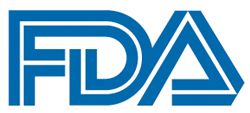Article
FDA Approves Umbralisib for Marginal Zone Lymphoma, Follicular Lymphoma
Author(s):
February 5, 2021 - The FDA has granted an accelerated approval to umbralisib for the treatment of select patients with relapsed/refractory marginal zone lymphoma and relapsed/refractory follicular lymphoma.
FDA

The FDA has granted an accelerated approval to umbralisib for the treatment of select patients with relapsed/refractory marginal zone lymphoma (MZL) and relapsed/refractory follicular lymphoma.
The agent is specifically indicated for adult patients with relapsed/refractory MZL who have previously received at least 1 anti-CD20–based regimen; it is also approved for use in adult patients with relapsed/refractory follicular lymphoma who have previously received at least 3 lines of systemic treatment.
The regulatory decision was based on data from 2 single-arm cohorts of an open-label, multicenter, multicohort trial, UTX-TGR-205 (NCT02793583), that was conducted in a total of 69 patients with MZL who had previously received at least 1 therapy, including an anti-CD20 containing regimen, and in 117 patients with follicular lymphoma who had previously received at least 2 systemic therapies. In the trial, participants received umbralisib at a once-daily dose of 800 mg until progressive disease or intolerable toxicity.
Results showed that the agent elicited an ORR of 49% in patients with MZL (95% CI, 37.0, 61.6); 16% experienced complete responses (CRs). The median duration of response (DOR) had not yet been reached (95% CI, 9.3-not evaluable) in this subgroup.
For patients with follicular lymphoma, the ORR was slightly lower, at 43% (95% CI, 33.6-52.2), with 3% of patients achieving CRs. The median DOR was 11.1 months (95% CI, 8.3-16.4) in this subgroup.
Regarding safety, the most frequently reported toxicities with umbralisib included increased creatinine, diarrhea/colitis, fatigue, nausea, neutropenia, transaminase elevation, musculoskeletal pain, anemia, thrombocytopenia, upper-respiratory tract infection, vomiting, abdominal pain, reduced appetite, and rash.
Eighteen percent of patients reported serious toxicities, which were most commonly diarrhea/colitis and infection. Transaminase elevation and diarrhea/colitis were the most common reasons for dose modifications with the agent.
Previously, the FDA granted breakthrough therapy designations to the PI3K-delta and CK1-epsilon inhibitor for MZL and orphan drug designations for MZL and follicular lymphoma based on data from the trial.
Reference
- FDA grants accelerated approval to umbralisib for marginal zone lymphoma and follicular lymphoma. News release. FDA. February 5, 2021. Accessed February 5, 2021. http://bit.ly/3aCBqQa.






%20(2)%201-Recovered-Recovered-Recovered-Recovered-Recovered.jpg?fit=crop&auto=format)

%20(2)%201-Recovered-Recovered-Recovered-Recovered-Recovered.jpg?fit=crop&auto=format)
%20(2)%201-Recovered-Recovered-Recovered-Recovered-Recovered.jpg?fit=crop&auto=format)